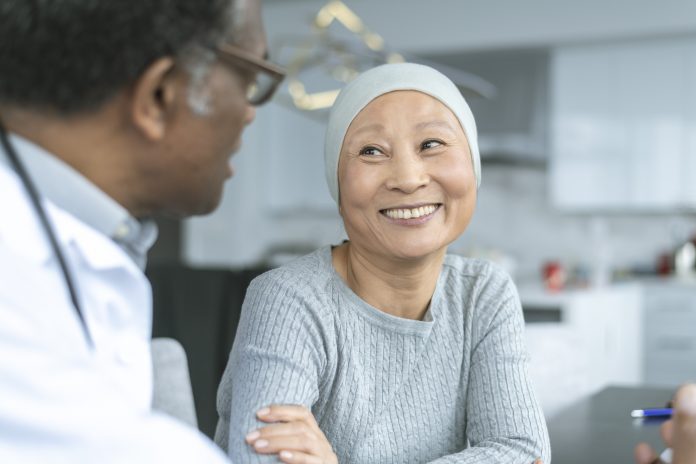
Despite significant advances in breast cancer treatment, tumors that don’t respond to hormone therapy, targeted drugs, or chemotherapy, remain hard to treat. Tulane University researchers have now determined how these cancers persist after chemo and why they don’t respond well to immunotherapies.
According to their study, published in Nature Cancer, surviving chemotherapy triggers a multiple immune checkpoints that shield breast cancer cells from different lines of immune attack. As a result, checkpoint inhibitors may kill tumor cells expressing one checkpoint but still evade immune attack.
“The tumor completely changes after chemotherapy treatment into this thing that is essentially built to block the immune system,” said corresponding author James Jackson, PhD, associate professor of biochemistry and molecular biology at Tulane University School of Medicine.
He also said, “Breast cancers don’t respond well to immune checkpoint inhibitors, but it has never really been understood why. We found that they avoid immune clearance by expressing a complex, redundant program of checkpoint genes and immune modulatory genes.”
The researchers studied the process in mouse and human breast tumors and identified 16 immune checkpoint genes that encode proteins designed to inactivate cancer-killing T-cells. The tumors that respond the worst to chemotherapy enter a state of cellular senescence instead of dying after treatment.
Researchers found two major populations of these senescent tumor cells, each expressing different immune checkpoints activated by specific signaling pathways. The team went on to show that immune evasion programs in tumor cells required both chemotherapy to induce a senescent state and signals from non-tumor cells.
“We’re among the first to actually study the tumor that survives post-chemotherapy, which is called the residual disease, to see what kind of immunotherapy targets are expressed,” said the study’s first author Ashkan Shahbandi, an MD/PhD student in Jackson’s lab.
The team’s characterization of residual disease revealed distinct tumor cell populations. The first population featured interferon response genes, typified by Cd274, whose expression required chemotherapy to enhance chromatin accessibility, enabling recruitment of IRF1 transcription factor.
A second population was characterized by p53 signaling, typified by CD80 expression. Treating mammary tumors with chemotherapy followed by targeting the PD-L1 and/or CD80 axes resulted in marked accumulation of T cells and improved response.
The team tested a combination of drugs aimed at these different immune checkpoints. While response could be improved, these strategies failed to fully eradicate the majority of tumors.
“Our findings reveal the challenge of eliminating residual disease populated by senescent cells that activate complex immune inhibitory programs,” Jackson said. “Breast cancer patients will need rational, personalized strategies that target the specific checkpoints induced by the chemotherapy treatment.”
There has been steady interest in improving breast cancer treatment by making it more personalized. The I-SPY 2 (Investigation of Serial Studies to Predict Your Therapeutic Response with Imaging And moLecular Analysis) recently defined new biomarker-specific breast cancer subtypes for high-risk patients, as part of the I-SPY 2 trial. They hope the subtypes reflect responsiveness to drug treatments and should help guide targeted therapy. The team also determined that the best subtyping schemas incorporate immune, DNA repair, luminal, and HER2 phenotypes.













